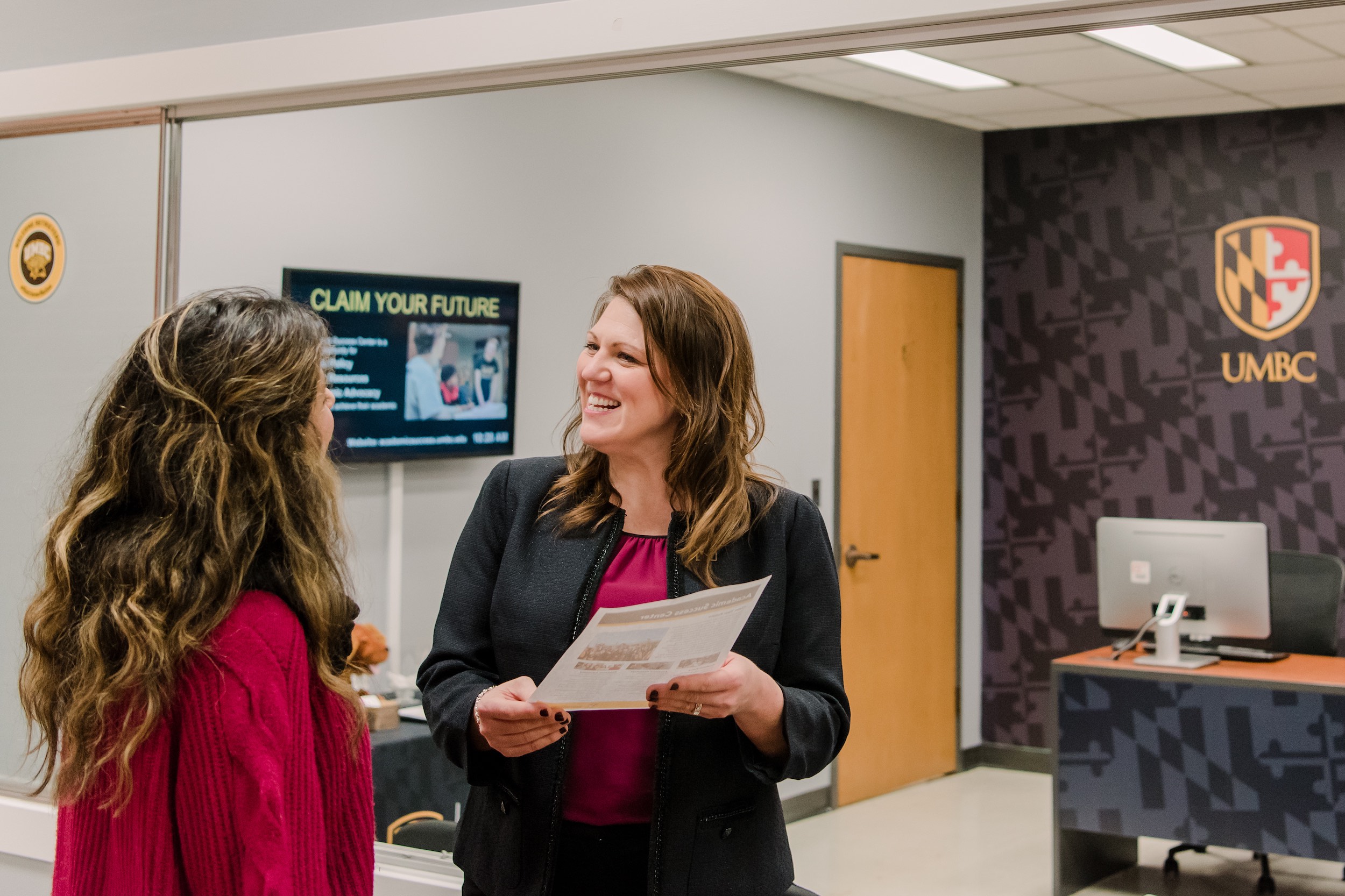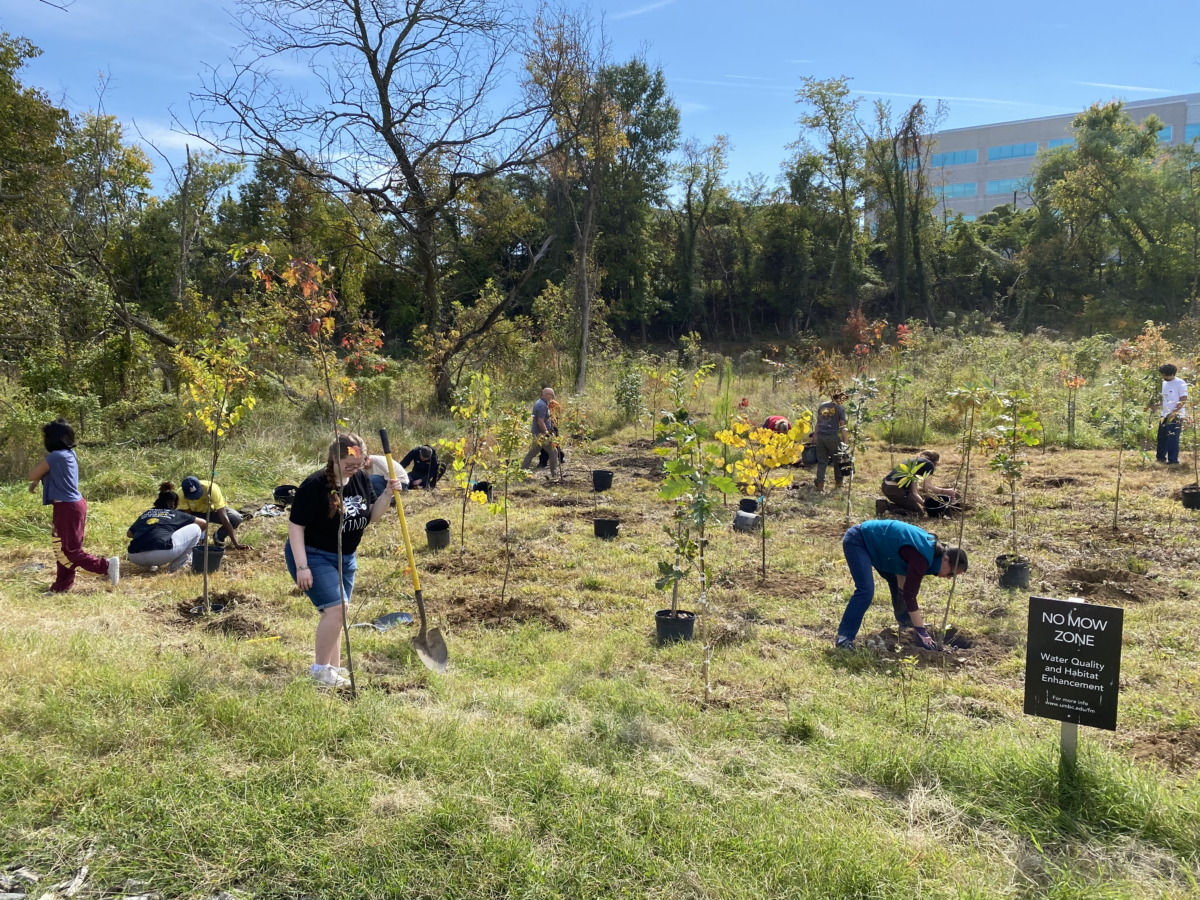When Amanda Knapp heard last fall from Anupam Joshi, professor and chair of computer science and electrical engineering (CSEE), that his department wanted to offer online tutoring to students in their courses, she was ready to help make it happen. COVID or no COVID, she says, “It just made sense.”
Knapp is associate vice provost and assistant dean of Undergraduate Academic Affairs, and she manages UMBC’s Academic Success Center (ASC). “We already had an established system in place and could provide the administration, training, staffing, and assessment,” she explains. “CSEE provided the funding and identified potential tutors for a variety of computer science courses, and we did the rest.”
Just a few months after the partnership began, it expanded to include courses in the information systems (IS) department. And this semester, tutors are supporting ten IS computing courses.
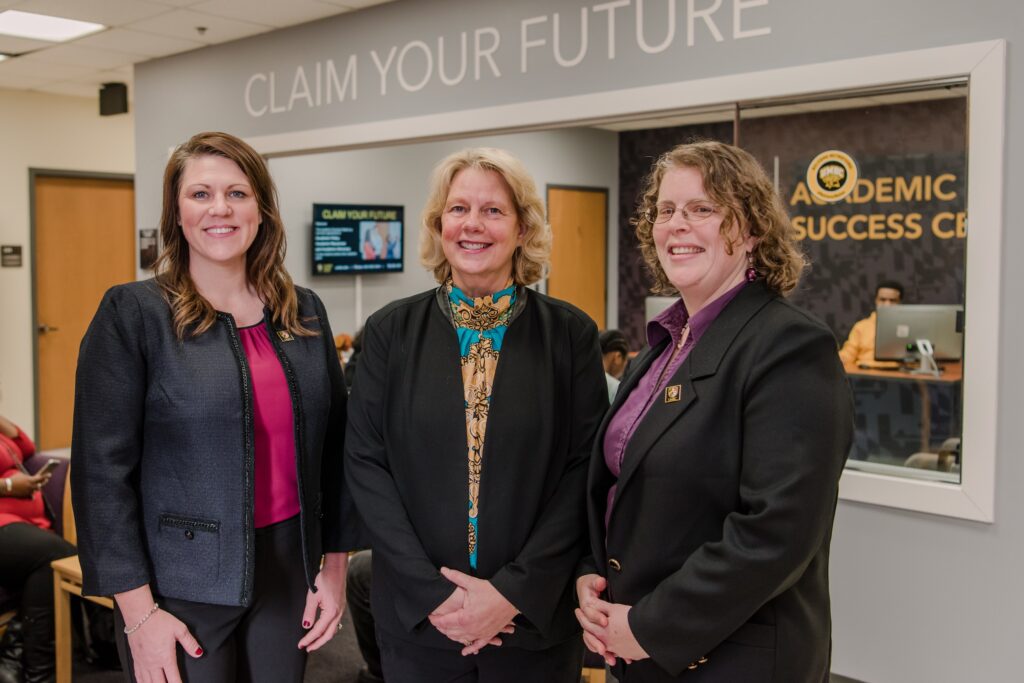
In total, the ASC’s new Computing Success Center now offers tutoring for 21 courses from across the College of Engineering and Information Technology (COEIT). And the center continues to grow, supported by COEIT Dean Keith J Bowman and Dean Katharine Cole, Undergraduate Academic Affairs.
Peer tutors help students of any major, from computing fields to the arts and life sciences, learn coding and other computing skills.
“The ethos of UMBC is to share knowledge and collaborate with others instead of being proprietary,” says Helena Mentis, associate professor of information systems. Mentis is COEIT’s associate dean of academic programs and learning, and one of the College leads on the partnership.
“At the end of the day,” she says, “our goal at UMBC is to ensure that there are multiple pathways for students to get the assistance they need to succeed and remove any barriers for access to help.”
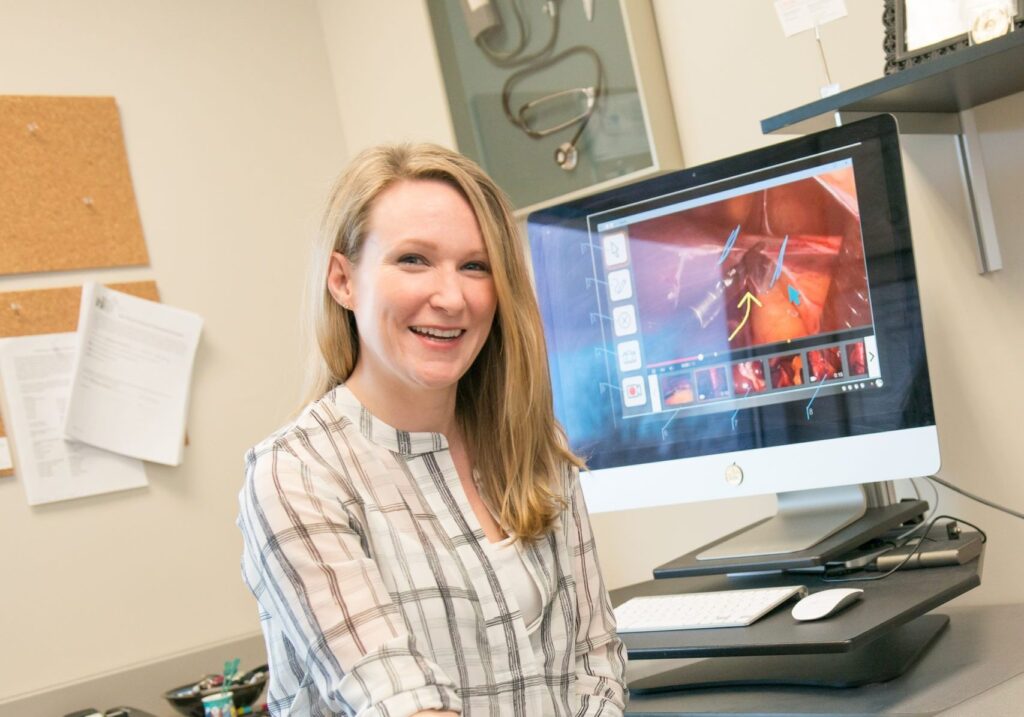
How it works
Students can now visit the website for the new Computing Success Center to access trained and faculty-recommended peer tutors at their convenience. And the tutoring isn’t just a series of online videos—it’s live and interactive.
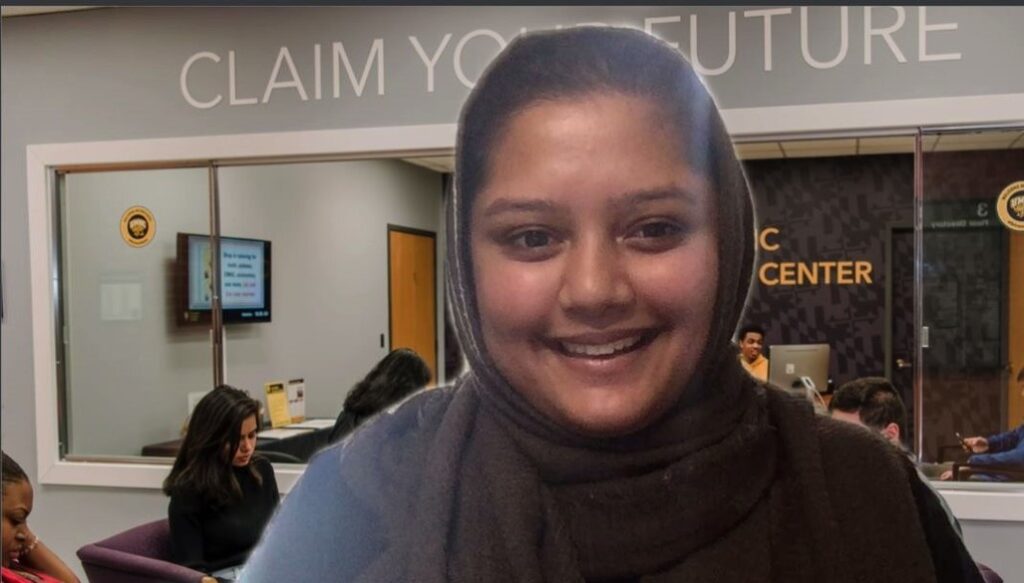
Britney Sarpong ‘21, computer science, taps into tutoring services twice a week for the CMSC 421: Operating Systems course she is taking. “I can easily log in and get help, and it’s usually the same tutor, so she and I have gotten to know each other really well,” she says.
For the operating systems course, Sarpong is learning C programming, which she likens to learning a foreign language. “I am not familiar at all with the language and terms with C programming,” says Sarpong, “so my tutor explains it in a way that I can understand while I’m working on projects.”
Moving services online
The tutoring offered by the Computing Success Center is just one of the many student support services offered by the ASC that has transitioned online during the COVID-19 pandemic. “This has been essential to enable us to continue serving UMBC students,” says Knapp.
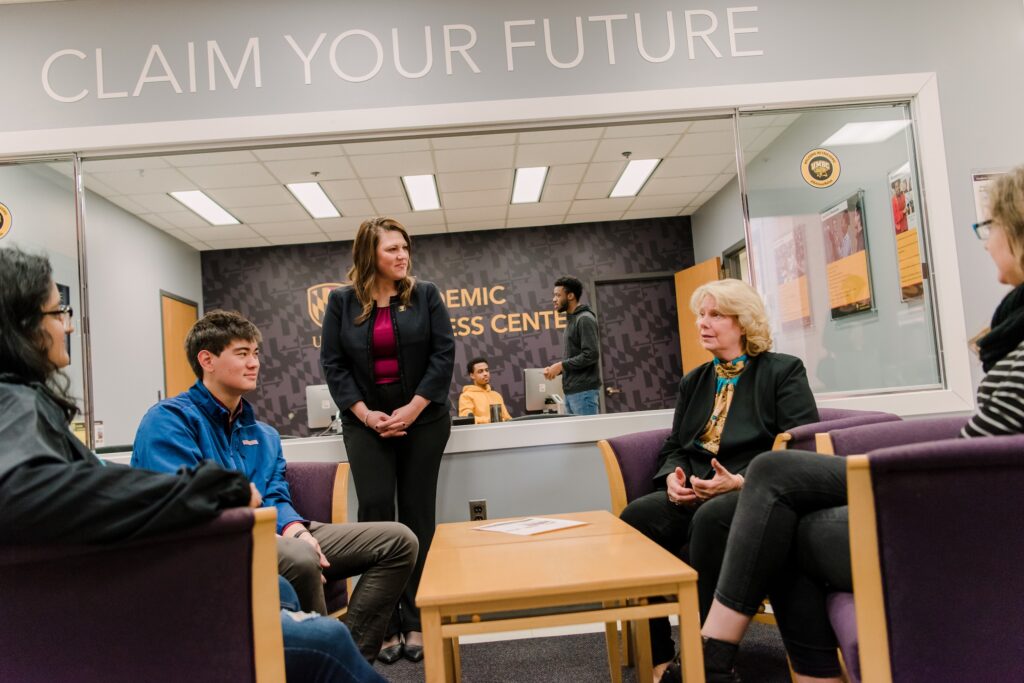
The Academic Success Center hires around 200 students to provide peer support each year. In addition to being paid and getting teaching experience, these student tutors also access professional development training.
Delana Gregg, director of academic learning resources, assessment, and analysis, says that the student tutors are integral to many of the services offered by the ASC.
“Faculty members recommend a student who excelled in a particular course. Then we train them on the technology and identifying strategies to help fellow students better understand the course content,” says Gregg.
The ASC provides tutoring in a range of formats, from appointment tutoring to drop-in tutoring, in the Computing Success Center, Writing Center, and the Math and Science Tutoring Center. In Fall 2020 alone, students attended over 3,000 tutoring appointments across all formats.
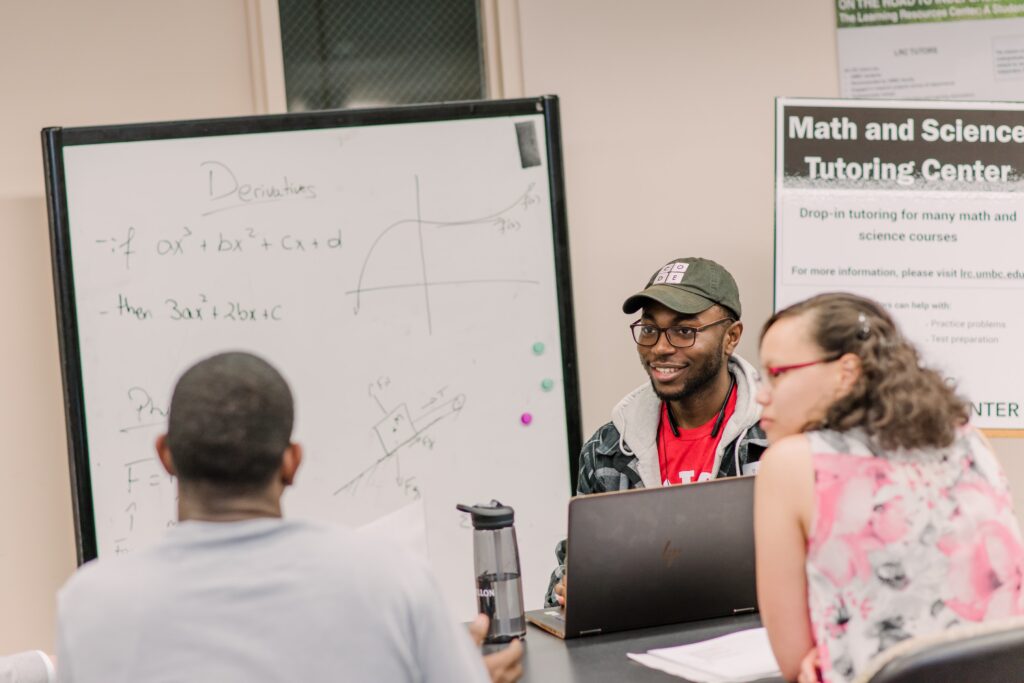
Gregg adds that peer-assisted study sessions (SI PASS) remain the most popular service utilized. “These are for courses that are historically difficult for students, often in the STEM areas,” she says. “SI Pass Leaders are students who have taken a particular course before. They attend the course again, take notes, and then hold weekly study sessions for current students.”
Emphasizing student success
The ASC also offers online learning resources for time management and study skills and academic alerts from faculty to students who are struggling in a course, to connect them with support. And the center is known for its academic advocates. They provide holistic support for students facing barriers to their academic success. These may include personal, academic, or financial issues.
“Sometimes students are unable to ask for help, are unaware that they are struggling academically, or are dealing with stress. Their stress may involve really complicated and challenging issues like the pandemic or racial inequality,” says Knapp. “We make sure they are cared for and heard.”
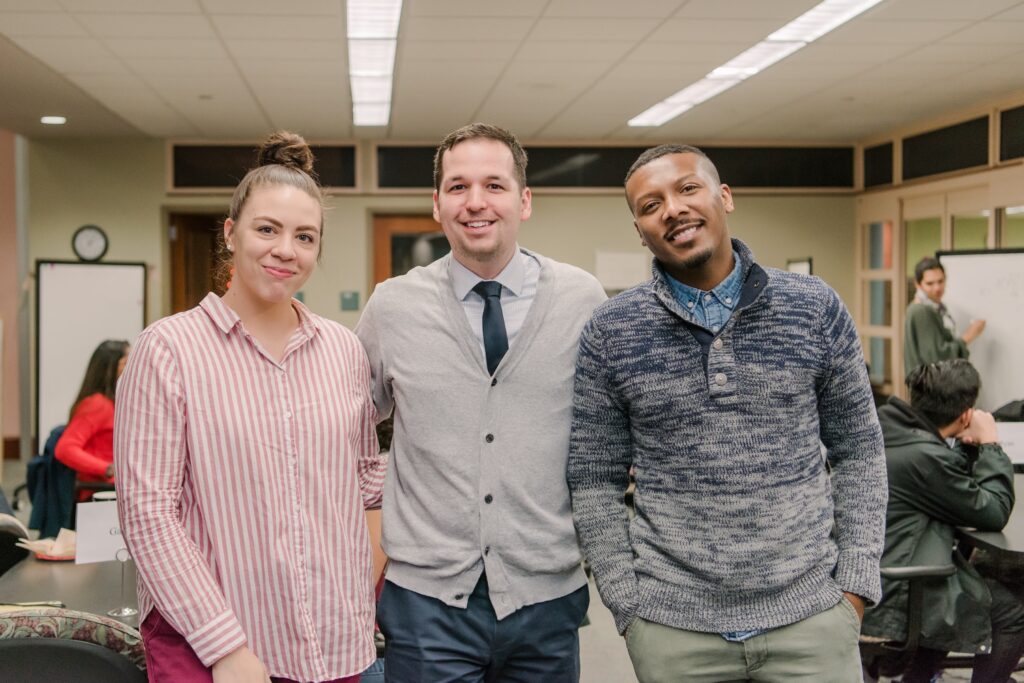
“UMBC students are very special, and here it’s cool to be smart,” says Gregg. “We have a large percentage of first-generation students who are very motivated to succeed, and the culture on campus emphasizes student success.”
Work like the partnership between COEIT and the Academic Success Center—where faculty and staff identify a problem and quickly partner with students to find a solution—is key to supporting student success.
Mentis shares, “The collaboration was so welcomed by faculty, department chairs of CSEE and IS, and Dean Bowman. In my time here, I believe it was the fastest initiative ever completed. Everyone said, ‘yes.’”
Banner image: Amanda Knapp speaks with a student in the ASC in 2019. Photos by Marlayna Demond ’11 for UMBC unless otherwise noted.
Article by Gregory J. Alexander for UMBC.

